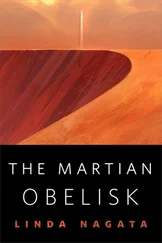He snatches up his hat and slams the door behind him. We see him vigorously stamping off, knock-kneed and bow-legged, a half-military figure with his bicycle clips. He is in formal retreat to his accustomed table at Blume’s Restaurant
“That bourgeois sadist wants to get fun out of his work,” I say angrily. “Imagine that! How can we carry on our business except with pious cynicism if we want to save our souls? That hypocrite wants to get pleasure out of haggling over corpses and actually considers it his hereditary right!”
Georg laughs. “Take your money and let’s be on our way.
Weren’t you going to buy a necktie? Get on with it! There’ll be no more raises today!”
He picks up the suitcase with the money and casually puts it in the room next to the office, where he sleeps. I stow my packages of bills in a cardboard box with the inscription: Konditorei Keller, Finest Pastries, Home Deliveries.
“Is Riesenfeld really coming?” I ask.
“Yes. He telegraphed.”
“What does he want? Money? Or has he something to sell?”
“We’ll find out,” Georg says and locks the office door.
We step outside. The strong sun of late April pours down as though a gigantic golden basin full • of light and wind were being emptied on us. We stop. The garden is aflame with green, spring rustles in the young foliage of the poplar tree as in a harp, and the first lilac is in bloom.
“Inflation,” I say. “There you have one too—the wildest of all. It looks as if even nature knows that now you can only reckon in ten thousands and in millions. Look what the tulips are up to! And that white over there and the red and yellow everywhere! And what fragrance!”
Georg nods, sniffs, and takes a puff of his Brazilian; for him nature is doubly beautiful when he can smoke a cigar at the same time.
We feel the sun on our faces and we look at all the splendor. The garden behind the house is also the showroom for our monuments. There they are drawn up like a company behind Otto, the obelisk, who stands like a thin lieutenant at his post beside the door. It is Otto that I urged Heinrich to sell, Otto, the oldest tombstone of the firm, our trademark and a prodigy of tastelessness. Directly behind him come the cheap little headstones of sandstone and poured concrete with narrow pointed socles, for the poor, who live and slave in honesty and naturally get nowhere. Then come the larger but still inexpensive ones, with two socles, for those who are always trying to improve themselves, at least in death, since in life it was not possible. We sell more of these than of the perfectly plain ones, and one doesn’t know whether to find this belated ambition on the part of the survivors touching or absurd. Next come the monuments of sandstone with inset plaques of marble, gray syenite, or black Swedish granite. These are already too expensive for the man who lives by the work of his hands. Small businessmen, foremen, artisans who own their own businesses are the clients—and of course that eternal bird of ill omen, the petty official who must always pretend to be more than he is, the honest white-collar proletarian of whom it is impossible to say how he manages to exist at all today since his raises always come far too late.
All these tombstones are still in the class of trifles—it is only behind them that you come to the blocks of marble and granite. First, those polished on one side, with front surfaces smooth but sides and backs roughhewn and socles rough all around. That is the sort for the more prosperous middle classes, the employer, the businessman, the larger store owner, and of course that diligent bird of ill omen, the higher official, who just like his lesser brother, must pay out more in death than he earned in life in order to preserve appearances.
But the aristocrats among the tombstones are those of marble and of black Swedish granite polished on all sides. Here there are no more rough surfaces and unfinished backs; everything has been brought to a high polish no matter whether one sees it or not, even the socles, of which there are not just one or two but often a third put in at an angle; and, if it is a showpiece in the real sense of the word, there is a stately cross of the same material on top. Today, of course, these are only for rich farmers, property owners, profiteers, and clever business people who deal in long-term promissory notes and so live on the Reichsbank, which keeps paying for everything with constantly replenished and unsupported paper currency.
Simultaneously we glance at the only one of these showpieces that, up to a quarter of an hour ago, still belonged to the firm. There it stands, black and glistening like the lacquer on a new car, the perfume of spring drifts around it, lilacs bend toward it; it is a great lady, cool, untouched, and, for one hour more, still virginal—then it will have the name of Otto Fleddersen, landowner, chiseled on its narrow waist in gilded Latin characters at eight hundred marks per letter. “Farewell, black Diana,” I say. “Farewell!” and I raise my hat to it. “To the poet it’s an eternal riddle that even perfect beauty is subject to the laws of fate and must perish miserably! Farewell! You will now become a shameless advertisement for the soul of the swindler Fleddersen, who cheated the poor widows of the city out of their last ten-thousand-mark bills for overpriced butter adulterated with margarine—not to mention his extortionate prices for calves’ liver, pork cutlets, and roast beef! Farewell!”
“You’re making me hungry,” Georg remarks. “Off to the Walhalla! Or do you want to buy your tie first?”
“No. I have time before the stores close. There’s no new dollar quotation Saturday afternoons. From noon today till Monday morning our currency is stable. Why? It sounds fishy to me. Why doesn’t the mark fall over the week end? Does God hold it up?”
“Because the stock exchanges are shut. Any more questions?”
“Yes. Does man live from inside out or from outside in?”
“Man lives, period. There’s goulash at the Walhalla, goulash with potatoes, pickles, and salad. I saw the menu as I was coming back from the bank.”
“Goulash!” I pick a primrose and put it in my buttonhole. “Man lives, you’re right! Whoever seeks further is already lost. Come along, let’s annoy Eduard Knobloch.”
We enter the big dining room of the Hotel Walhalla. At sight of us Eduard Knobloch, the owner, a fat giant with a brown toupee and a floating dinner coat, makes a face as though he had chewed on a bullet in his venison.
“Good morning, Herr Knobloch,” Georg says. “Fine weather today. Gives one a great appetite!”
Eduard jerks his shoulders nervously. “Eating too much is unhealthy! It damages the liver, the gall bladder, everything.”
“Not at your place, Herr Knobloch,” Georg answers genially. “Your noonday meal is wholesome.”
“Wholesome, yes. But too much of what is wholesome can be harmful too. According to the latest scientific investigations, too much meat—”
I interrupt Eduard by giving him a gentle slap on his soft belly. He leaps back as though someone had touched his privates. “Leave us alone and resign yourself to your fate,” I say. “We won’t eat you out of house and home. How’s the poetry?”
“Gone begging. No time! In these times!”
I do not laugh at this idiotic word play. Eduard is not only an innkeeper, he is a poet too—but he’ll have to do better than that. “Where’s a table?” I ask.
Knobloch looks around. His face suddenly brightens. “I’m extremely sorry, gentlemen, but I’ve just noticed there’s not a table free.”
“That doesn’t matter. We’ll wait.”
Eduard glances around again. “It looks as if none will be free for quite some time,” he announces beaming. “The customers all seem to be just beginning their soup. Perhaps if you would care to try the Altstädter Hof or the Railroad Hotel. They say you can eat quite passably there.”
Читать дальше








